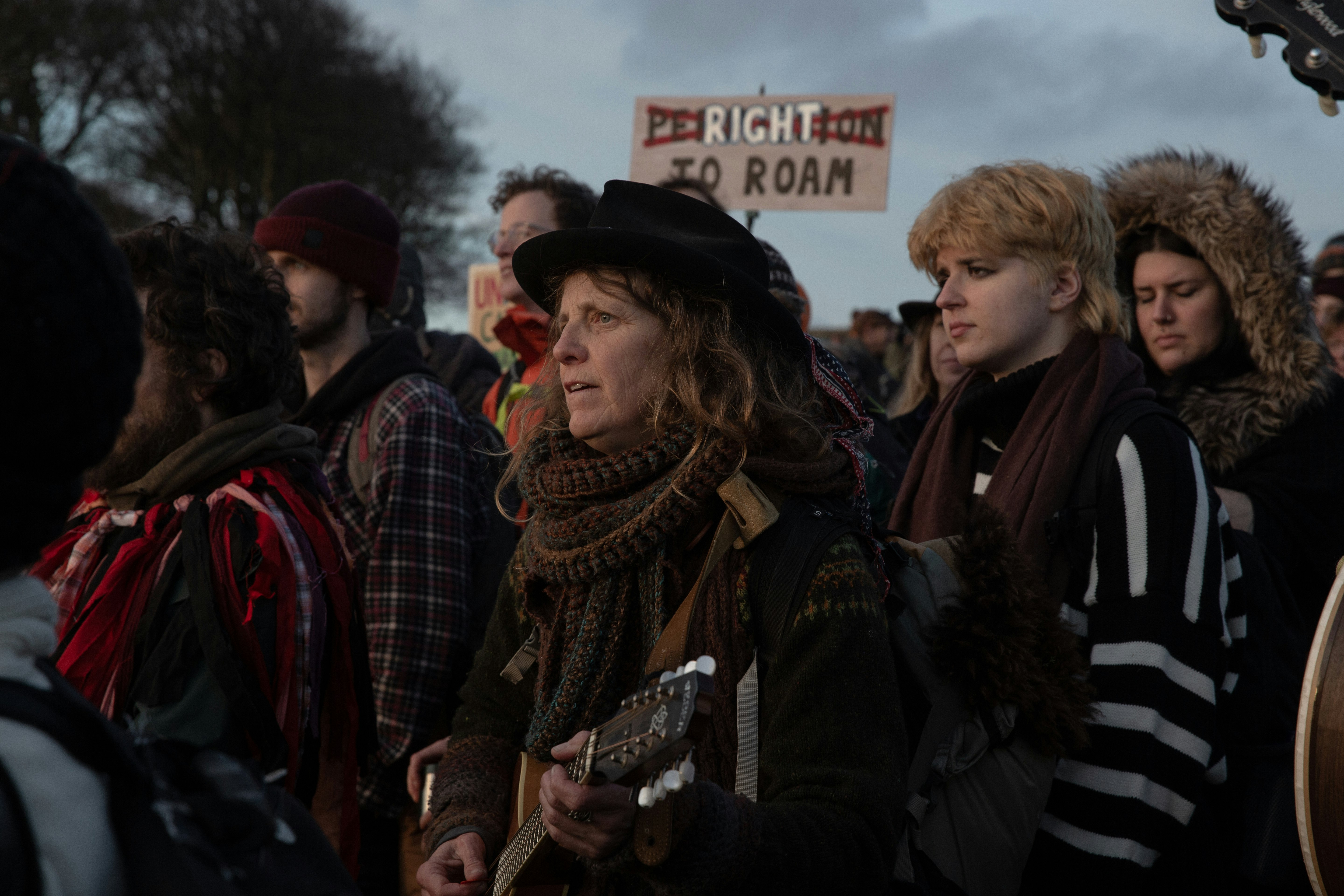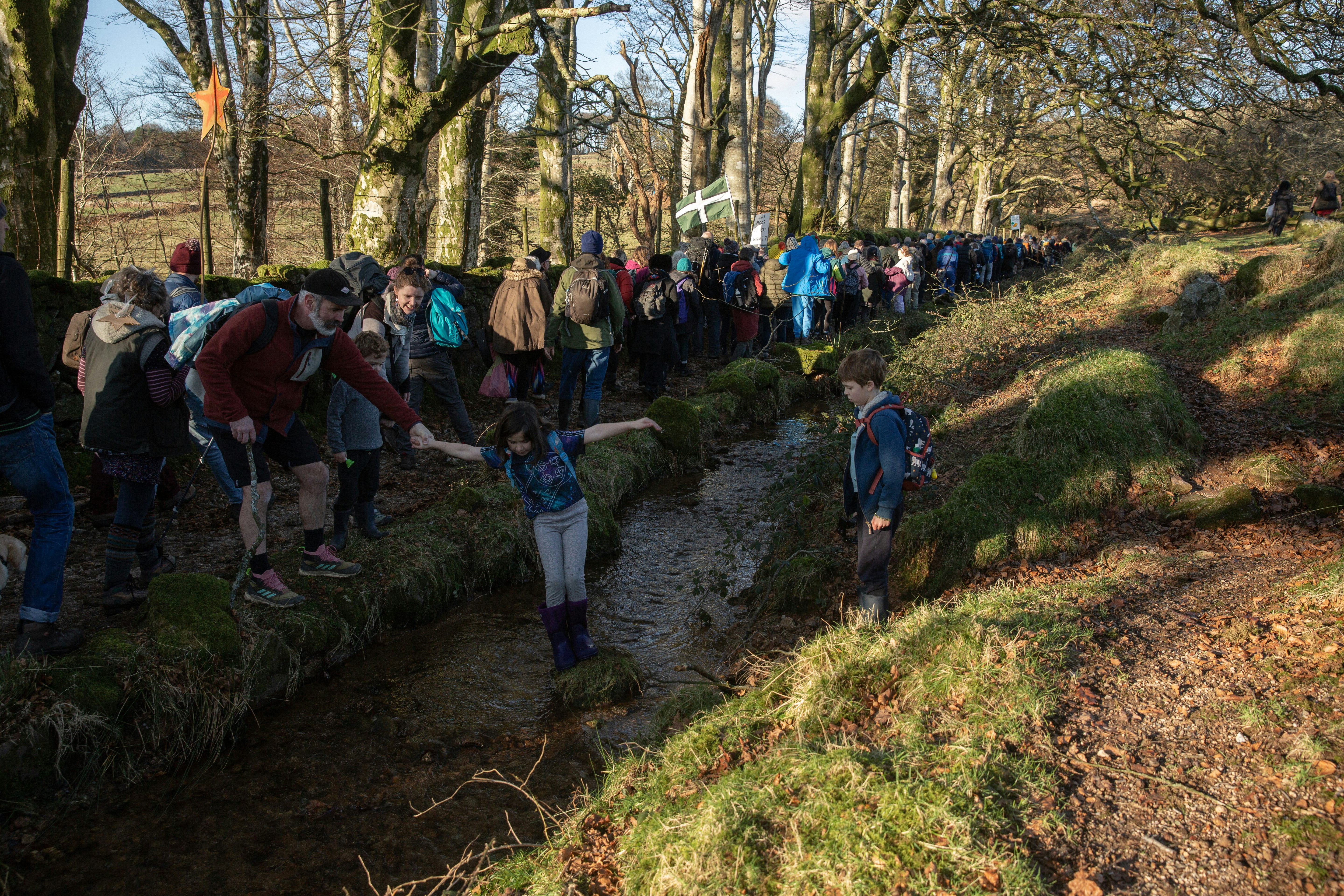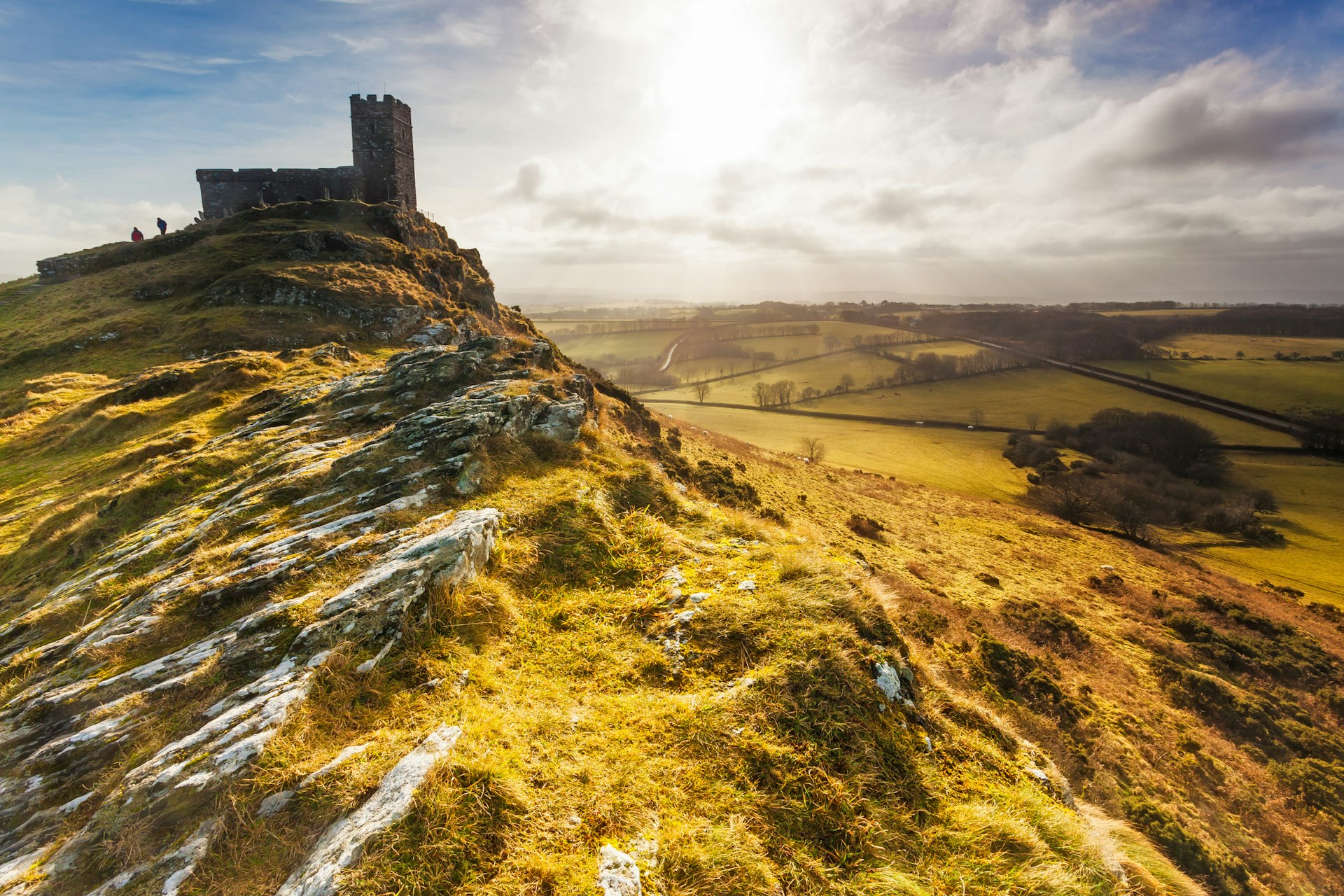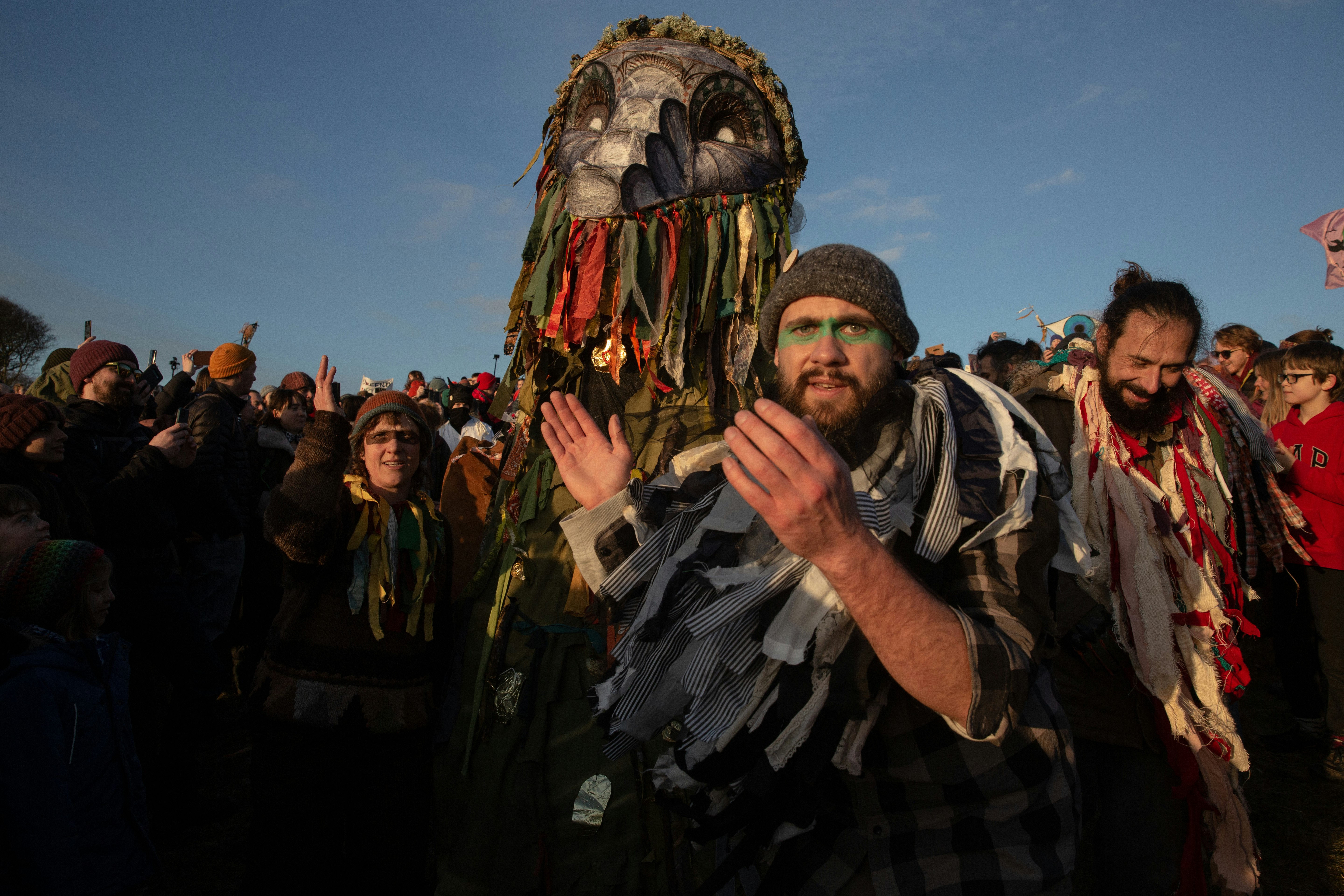According to a local legend, when a wealthy businessman sought to make a profit by farming on Dartmoor, Old Crockern — the mythological protector of the moors — cursed the venture and drove the man away. On Saturday, January 21, almost 3,000 people took to the moors to raise that same spirit against another wealthy landowner, Alexander Darwall, whose recent court case ended the right to wild camp in the national park.
The march across the granite-strewn moors was one of the UK’s largest ever countryside access protests, gathering on Darwall’s estate to protest not only the loss of England’s last legal wild camping spot, but also the reduction of Britain's ‘right to roam’ in general. In Britain, it's now only legal to wild camp in parts of Scotland without permission.
Until recently, the right to freely camp in Dartmoor National Park without seeking the landowner’s permission was assumed to be protected by a local bylaw. That right was overturned earlier this month when Darwall, a hedge fund manager and Dartmoor’s sixth-largest landowner, won a court case against the Dartmoor National Park Authority (DNPA) in which he argued the right had never existed.

Dartmoor: England's wild camping holdout
Dartmoor’s windswept landscapes may feel like a vast wilderness, but all land within the national park is privately owned. Despite that, visitors have long enjoyed a right to roam almost freely across the park. The Dartmoor Commons Act 1985 was passed to protect the historical custom of access ‘to all the commons on foot and horseback for the purposes of open-air recreation.’ For decades, ‘open-air recreation’ has been assumed to include wild camping. The DNPA had outlined a map of areas on Dartmoor where wild camping was permitted, which extended to most of the national park, as well as a strict code of conduct for campers.
Darwall and his supporters claimed that many visitors do not follow these rules, causing damage to estates, leaving trash, and lighting fires which can be dangerous during the dryer summer months.

The Dartmoor deal explained
At a two-day hearing in December 2022, Darwall argued that wild camping was not covered within the Commons Act, while the DNPA countered that camping was accepted as ‘open-air recreation.’ After all, it’s hard to see what else camping is if not recreation. However, on January 13, 2023, judge Sir Julian Flaux ruled in Darwall’s favor, stating that the Commons Act did not “confer on the public any right to pitch tents or otherwise make camp overnight on Dartmoor Commons.”
Mr. Justice Flaux also said there was “no local custom of camping which has the force of law,” and it was “apparent” that some wild campers on the Darwalls’ land did “cause problems in relation to livestock and the environment.”
While the DNPA’s chief executive Dr. Kevin Bishop said they were “disappointed with the outcome,” the authority is still considering their position regarding appealing the law. Many campaigners are calling for them to do so.
Tom Sigler, a wild camping expert who shares tips at @weekend_hiker, told me he was “both surprised and disappointed by the ruling which overturns more than 30 years of legal wild camping on Dartmoor. It has been enjoyed responsibly by generations who understand leave no trace principles, and I sincerely hope that this decision can be successfully appealed soon’”.
On January 21, more than 3,000 people attended the protest march on Darwall’s estate organized by campaign groups The Stars Are for Everyone and Right to Roam.

A New agreement
Following the ruling, the DNPA met with the Dartmoor Commons Owners’ Association on January 18 to discuss the future of wild camping in the national park. An agreement in principle was reached with some landowners, who will be paid an as-yet-unagreed amount by the DNPA to continue to permit wild camping on parts of their estates.
A new map will be published on the DNPA’s website to show where camping is now permissible: the area appears to be around one-fifth smaller than before and is now subject to the ongoing permission of landowners.
Many have expressed concerns over this more restrictive agreement, which will see landowners paid for permissions using public funds. In a statement released on Twitter, Guy Shrubshole from the Right to Roam campaign called it a “stitched up deal” and “a ransom note from landowners who will be able to revoke permission to camp at any time.”

The loss of Right to Roam
Old Crockern may not have attended Saturday’s protest in the (spectral) flesh, but his ferocious spirit was there amongst campaigners, who are calling not only for an overturn of the wild camping deal but for more rights to roam in general.
The Right to Roam campaign points out that the public is currently banned from 92% of England’s countryside and 97% of its rivers.
They are calling for legislation similar to that in Scotland, where the Land Reform (Scotland) Act 2003 established the right to responsible public access to most land for open-air recreation. They aren’t the only ones: British Canoeing, Ramblers, the British Mountaineering Council, Campaign for National Parks, and the Open Spaces Society have all spoken out against the new permissive deal, calling instead for even more public access to nature.
And with the ‘right to roam’ movement gaining traction, Dartmoor’s campaigners - along with nature lovers across England - may soon be thanking Mr. Darwall for bringing it back into the spotlight.
What can wild campers expect in Dartmoor now?
For travelers to Dartmoor, there may not be much change at the moment. Under the newly reached agreement, wild camping remains generally permitted - albeit within a reduced area. Visitors should check the DNPA’s website for the latest information, regulations, code of conduct, and map.

